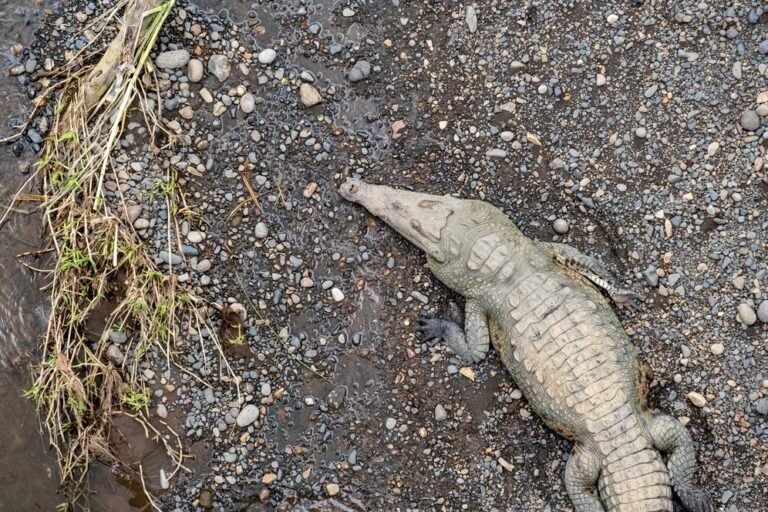Do Crocodiles Die from Old Age?
In the realm of reptilian legends, few animals have captured the imagination of scientists and the public alike quite do crocodiles die from old age. These ancient reptiles, often referred to as “living fossils,” have survived since the time of the dinosaurs. One of the most intriguing questions surrounding them is whether crocodiles die from old age in the same way humans or other animals do. There are claims that crocodiles do not die of aging, but rather live until something kills them—be it disease, injury, or predators. This idea has led to fascination with the concept of “biological immortality” in crocodiles. But how much of that is myth, and how much is grounded in biological truth? In this article, we will explore crocodile aging, longevity, and mortality to uncover what science really says.
Crocodile Lifespan: How Long Do They Live in the Wild and in Captivity?
Crocodiles are known for their impressive lifespans. In the wild, they can live up to 70 years, with some larger species like the saltwater crocodile and Nile crocodile reportedly reaching ages beyond that. However, in captivity—where threats such as predation, food scarcity, and injuries are minimized—crocodiles have been known to live even longer, sometimes exceeding 100 years. Their longevity is due in part to their slow metabolism and efficient physiology, which allows them to survive with minimal resources over long periods. Despite this long life, their aging process is not as straightforward as in mammals. Crocodiles show few outward signs of aging like graying scales or reduced fertility, which has led to the perception that they don’t “age” in the traditional sense.
Do Crocodiles Age Like Other Animals? Understanding Negligible Senescence
Crocodiles exhibit what scientists call “negligible senescence,” a term that describes organisms that do not exhibit typical signs of aging. This means that unlike humans, who experience a decline in reproductive capacity, immune function, and physical performance with age, crocodiles maintain many of these abilities well into old age. Their cells do not deteriorate at the same pace as those of mammals. However, negligible senescence doesn’t mean they are immortal. Over time, damage from environmental stress, infection, or injury can accumulate. Still, their bodies seem remarkably adept at resisting the wear and tear that causes other animals to weaken and die simply due to getting older. This unique trait has sparked considerable interest in the fields of biology and aging research.
Causes of Death in Crocodiles: If Not Age, Then What?
Although crocodiles don’t appear to die of old age in the usual sense, they are still vulnerable to other causes of death. In the wild, young crocodiles are frequently eaten by predators, including birds, fish, and even other crocodiles. As they grow older and larger, they become apex predators, but that doesn’t make them invincible. Injuries from territorial fights, especially among males, can lead to infections and fatal wounds. Diseases, especially in polluted habitats, can weaken or kill them. Furthermore, starvation can occur if food sources dwindle, particularly in drought-affected regions. In captivity, where threats are fewer, they can die from organ failure or undiagnosed illnesses—indicating that while they may not die directly from aging, age-related factors can still contribute to mortality indirectly.
The Myth of Crocodile Immortality: Separating Fact from Fiction
There’s a popular myth that crocodiles never die of old age and can only be killed by external factors. This misconception likely arises from their negligible senescence and the difficulty in tracking individual crocodiles across decades in the wild. In reality, while crocodiles can live for an extraordinarily long time and show minimal signs of aging, this does not equate to immortality. They still experience cumulative biological stress, cellular wear, and environmental challenges that eventually lead to death. No crocodile lives forever, and while their aging process is slower and less evident, it is not entirely absent. The myth persists because crocodiles are rarely found dead from old age in the wild—they often die from accidents, starvation, or predation before aging can claim them.
What Science Says: Are Crocodiles the Key to Anti-Aging Research?
do crocodiles die from old age have become subjects of interest in aging and medical research due to their durability, immunity, and longevity. Their ability to heal quickly, resist infection, and maintain physiological functions with age has prompted scientists to explore their genetics and biochemistry. Some studies have focused on their immune systems, which appear robust even in old individuals. Researchers are interested in the potential biomedical applications of crocodile proteins and DNA, especially in developing treatments for chronic illnesses or enhancing wound healing in humans. While it’s too early to say crocodiles hold the secret to human immortality, their biology may one day offer insights that help extend the human healthspan or fight age-related disease.
Conclusion: Do Crocodiles Die from Old Age?
In summary, crocodiles do not die from old age in the traditional sense seen in most mammals. Instead, they exhibit negligible senescence and can maintain their bodily functions over many decades. However, they are not immune to death. Accidents, diseases, starvation, and environmental challenges eventually catch up with them. The myth of their immortality is rooted in misinterpretation of their biology, but science shows that while they age slowly and gracefully, they are not eternal. Crocodiles are among nature’s most fascinating survivors, and their unique relationship with time continues to inspire curiosity and scientific exploration.

